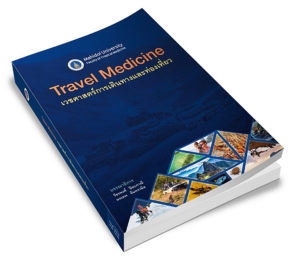Giving malaria advices is our everyday duty in travel clinic. Thanks to the Internet, many travelers are very well-informed already. Unfortunately, information from the Internet is not always reliable. Here are some common misconceptions about malaria;
Myth 1 Malaria exists everywhere in Southeast Asia
FACT: Malaria in Southeast Asia exist mainly in the jungle or forested area. There is no malaria in the urban area. Main tourist destinations particular in Thailand is free from malaria including Bangkok, Pattaya, Phuket, Chiangmai city, etc
Myth 2 Once you get malaria, it will stay in your body for years or even life-long
FACT: Nowadays, we have very effective medication for treatment of all species of malaria. All malaria can be cured. Although, some species of malaria namely P. ovalae and P. vivax could stay in your liver for a long time, we could eradicate them.
Myth 3 Drinking water from the river or the steam in the forest may lead to malaria
FACT: You could get malaria when you are bitten by infected mosquito. The other way that you could get malaria is to contact with malaria infected blood; for example received blood transfusion from patient with malaria. Malaria is not transmitted via water or food.
Myth 4 Malaria could be prevented by vaccine
FACT: Currently, there is no malaria vaccine available in the market. Although some vaccines had been used in the research, the results were not promising. We have to wait for a safe and effective vaccine.
Myth 5 If you take antimalarial tablet, you can be sure that you will not get malaria
FACT: No antimalarial medication is 100% effective when use to prevent malaria. Most of them are around 80-95% effective, that means you could get malaria while you’re taking antimalarial medication. And in this situation, it may be difficult to find malaria in your blood, or your symptoms might not be obvious which may lead to unawareness of malaria. So you should inform the doctor that you visited malaria risk area and had been taking antimalarial medication.
Myth 6 The pattern of fever in malaria will be classic; intermittent fever with shivering
FACT: In the real life, patients with malaria can have every patterns of fever. Some will have classic malaria fever i.e. high graded, intermittent fever with shivering, while some may have continuous fever without shivering. Or in some cases may complain only low graded fever. So we could not use pattern of fever as a marker of malaria.
Myth 7 If your blood test is negative for malaria, you can be sure that you did not get malaria
FACT: We can say only we do not find any malaria in your blood. In some malaria cases, the first blood test may be negative. Since the number of malaria in the blood may be too low to detect. So in some highly suspected cases, we have to recheck the blood again and again may be for 3 times before we can be sure that this episode of fever is not caused by malaria. However, for that next episode of fever, if any, we have to check again.
Myth 8 Once you develop fever from malaria, you will die within 1 day
FACT: It is extremely rare that someone will die from malaria within one day once the symptom develop. Generally, the fatal case of malaria result from unawareness and delay diagnosis and treatment of malaria. Most cases will have fever for 4 or more days without seeing any doctor. The patient can be rapidly deteriorated and eventually die. However, if we could diagnose early and give prompt treatment, we could save patient’s life. That means malaria is not difficult to treat if we begin the treatment early. Do not forget to tell you doctor that you’ve been in malaria risk area.


Leave a Reply